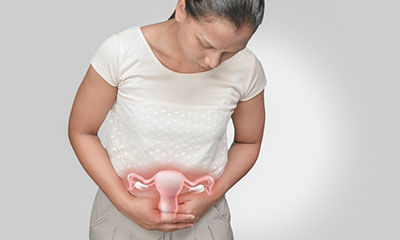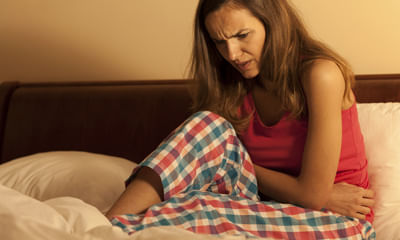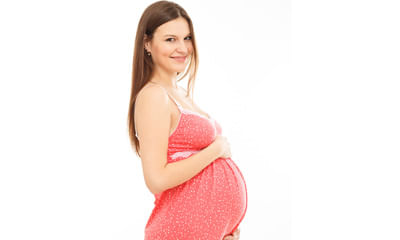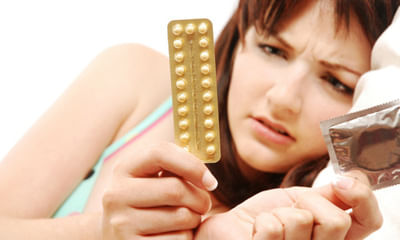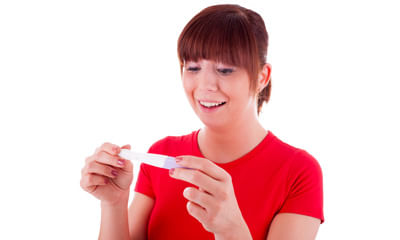Uterus Growth During Pregnancy
My question is: I have problem of irregular periods. When before period I ovulate and became pregnant that time, then fr ...
Ask Free Question
During pregnancy the uterine walls does not shed. So there is no bleeding. The whole menstrual cycle is. A complex hormonal interchange system. It is not possible to explain it to a non medical personnel.
Mam I had sex on 19th of Feb and I took i-pill on 21 of Feb. My last period was on 30th of Jan. Today 4th march I got li ...
Ask Free Question
There is no fixed time in which one bleeds after taking ipill. Sometimes unexpected bleeding occurs more over it is not necessary. Next menstrual cycle can be early or delayed as side effects of the pill.
What’s the cause of uterus fibroid and breast fibroid? Can it be melted on their own? Please suggest me. ...
Ask Free Question
Doctors don't know the cause of uterine fibroids, but research and clinical experience point to these factors: genetic changes. Many fibroids contain changes in genes that differ from those in normal uterine muscle cells. Hormones. Estrogen and progesterone, two hormones that stimulate development of the uterine lining during each menstrual cycle in preparation for pregnancy, appear to promote the growth of fibroids. Fibroids contain more estrogen and progesterone receptors than normal uterine muscle cells do. Fibroids tend to shrink after menopause due to a decrease in hormone production. Other growth factors. Substances that help the body maintain tissues, such as insulin-like growth factor, may affect fibroid growth. Many women with uterine fibroids experience no signs or symptoms, or only mildly annoying signs and symptoms that they can live with. If that's the case for you, watchful waiting could be the best option.
Hi doctor, I am married. I got my follicular scanning report. In the report it is mentioned that I have a intramural fib ...
Ask Free Question
Not in conception but there are chances of growth of fibroid during pregnancy and cause complications. Better take homoeopathic treatment for it. You can consult me through Lybrate for homoeopathic treatment and further guidance.
Hi doctor need to inform you me and my partner had sex on my periods date was 28 dec my periods last up to 30 dec as con ...
Ask Free Question
-pill tablet is a hormonal contraception, an effective contraceptive tablet widely used by women to avoid unwanted pregnancy about i-pill emergency contraceptive pill, 1 tablet i-pill emergency contraceptive pill, 1 tablet belongs to the class of medications called ‘contraceptives’ primarily used for birth control and treating dysmenorrhea (irregular and painful periods). Contraception is a procedure that aims to prevent pregnancy and is used in family planning. Dysmenorrhea is irregular and painful, leading to abdominal pain, digestion problems, fainting, vomiting, and nausea. I-pill emergency contraceptive pill, 1 tablet is a combination of three medicines: levonorgesterol, ethinylestradiol, and ferrous fumarate. I-pill emergency contraceptive pill, 1 tablet works by preventing the release of an egg from ovaries and making sperm entry difficult to enter in the uterus to fertilise sperm and egg. In addition to this, i-pill emergency contraceptive pill, 1 tablet prevents the thickening of the uterus's inner wall, required for an egg growth in the uterus. Ferrous fumarate is required to make up for the amount of iron in the women lost during their menstrual period. You should take this medicine as prescribed by your doctor. The common side effects are acne, amenorrhea (absence of menses), tenderness, pain, or swelling of the breasts, decrease in the secretion of breast milk after giving birth, dizziness, oedema (fluid retention), gastrointestinal symptoms such as abdominal pain, cramps, and bloating, unwanted hair growth, intolerance to contact lenses, changes in sexual desire, loss of scalp hair, change in menstrual flow, dark patches on the skin, mood changes, nausea, nervousness, vaginal discharge, vomiting, and loss or gain of appetite. If the side effects are persistent, reach out to your doctor. Do not take i-pill emergency contraceptive pill, 1 tablet if you are allergic to any contents of it. Please do not smoke while you are using i-pill emergency contraceptive pill, 1 tablet as it increases the risk of a blood clot. Inform your doctor before starting i-pill emergency contraceptive pill, 1 tablet if you are over 35 years, smoke, have or ever had a heart problem, uncontrolled hypertension (high blood pressure), cancer of breast, uterus, or vagina, liver diseases, diabetes that affect blood vessels, headache with disruption of the brain function, and prolonged immobilization due to a surgery. Do not take this medicine if you are pregnant or breastfeeding. Uses of i-pill emergency contraceptive pill, 1 tablet contraception, dysmennohrea (irregular menstrual cycle) medicinal benefits i-pill emergency contraceptive pill, 1 tablet is a combination of three medicines: levonorgestrel, ethinylestradiol, and ferrous fumarate. It is primarily used for contraception (prevent pregnancy). It increases menstrual cycle regularity and decreases blood loss. It decreases the incidence of iron-deficiency anemia, dysmenorrhea (irregular or painful periods), functional ovarian cysts, and ectopic pregnancies (pregnancy outside the womb). Long-term use may decrease the incidence of fibroadenomas and fibrocystic disease of the breast (lumps in the breast), acute pelvic inflammatory disease (inflammation of the pelvic organs), and cancer of the ovary and vagina. Directions for use tablet: swallow it as a whole with water; do not crush, break or chew it. Safety information keep in a cool and dry place, away from sunlight keep out of reach of children storage store in a cool and dry place away from sunlight key ingredients levonorgestrel. Side effects of i-pill emergency contraceptive pill, 1 tablet acne amenorrhea (absence of menses) tenderness, pain, or swelling of the breasts decrease in secretion of breast milk after giving birth dizziness edema (fluid retention) gastrointestinal symptoms such as abdominal pain, cramps, and bloating unwanted hair growth intolerance to contact lenses changes in sexual desire loss of scalp hair change in menstrual flow dark patches on the skin mood changes nausea nervousness vaginal discharge vomiting loss or gain of appetite in-depth precautions and warning drug warnings i-pill emergency contraceptive pill, 1 tablet increases the risk of blood clots, heart attacks, strokes, gallbladder disease, liver tumors, cancer of the ovary, breast, cervix, or vagina, and inflammation of the pancreas. Do not stop taking this medicine even if there is irregular menses or spotting. Missing pills can also cause spotting or light bleeding. Do not switch to another brand or another type of birth control without informing your doctor. Drug interactions drug-drug interactions: i-pill emergency contraceptive pill, 1 tablet may interact with an antitubercular drug (rifampicin), drugs used for epilepsy (phenobarbital, phenytoin, primidone, topiramate, carbamazepine, and phenylbutazone), drugs used for hiv (ritonavir and modafinil), antibiotics, penicillins, and tetracyclines, herbal products containing st. John’s wort (hypericum perforatum). Drug-food interactions: alcohol consumption should be avoided while taking i-pill emergency contraceptive pill, 1 tablet. Drug-disease interactions: i-pill emergency contraceptive pill, 1 tablet should not be used in patients with a history of heart attack or stroke, blood clots in the legs (thrombophlebitis), lungs (pulmonary embolism), or eyes, blood clots in the deep veins of your legs, known or suspected breast cancer or cancer of the lining of the uterus, cervix, or vagina, liver tumor (benign or cancerous), angina pectoris (chest pain), unexplained vaginal bleeding, jaundice (yellowing of the whites of the eyes or skin) during pregnancy or during previous use of the pill, heart rhythm disorders, diabetes affecting your circulation, headaches with neurological symptoms, uncontrolled high blood pressure, liver disease, and surgery with prolonged bed rest.
I am newly married and marriage was on 27 december and my last period was on 14th now am pregnant today I was taken scan ...
Ask Free Question
Dear user. TO CAUSE PREGNANCY on a woman, sperm should be ejaculated inside the vagina or fresh sperm should be inseminated inside the vagina with some means during the fertility period of the woman. There are many determinants of pregnancy. You should be sexually matured. Your partner should be sexually matured. The period of your partner should be in the fertile stage. Her egg and your sperm cells should be healthy enough. Then her uterus should be capable to get conceived. If all these were satisfied, the pregnancy could be a result. Semen do not pass through clothes to make pregnancy. Sex during periods does not cause pregnancy. Usually precum do not contain any sperm cells. Period means disintegration of the uterus membrane which is meant to be for the child. Swallowing male sperm cannot cause pregnancy. If you have taken unwanted 72 within 72 hours of intercourse, the chances of pregnancy is low. In the given case, there are less chances of pregnancy. Talk to a gynecologist for advice. Take care.
Me and my gf is sexual intercourse last two days ago then my gf is ejaculation or vaginal bleeding she's pregnant or not ...
Ask Free Question
Abnormal vaginal bleeding between periods is also called intermenstrual bleeding, spotting, and metrorrhagia. When bleeding occurs between normal periods, there are many possible causes. Potential causes of bleeding between periods include: a growth in your uterus or cervix.
Good evening sir, Sir on my sixth week of pregnancy brown flakes started I visited doctor he advised me for ultrasound t ...
Ask Free Question
Pain is due to medicine given to you for abortion. It causes spasm in uterus which cause abortion. Once uterus remove everything than it will stop. But you should consult gynaecologist after 7-10 days to check uterus is completely clean and no foetal particles are still in uterus.
Mifty kit is useful. My life partner. Not ready for pregnancy. She want to use mifty kit. This is useful for her. Any si ...
Ask Free Question
Mifty Kit is a combination of two medicines: Mifepristone and Misoprostol which cause abortion. Mifepristone blocks the effects of progesterone, a natural female hormone which is needed for the pregnancy to sustain. Without this hormone, the lining of the uterus (womb) breaks down as it does during a menstrual period and stops the growth of the pregnancy. Mifepristone increases contractions of the uterus to cause abortion.Side Effects of Mifty are Nausea, Vomiting, Diarrhoea, Stomach cramp, Uterine contractions, Heavy menstrual periods.
I am 19 years old female .as usual I took krimson 35 on the 5th day evening of periods but same night after taking the p ...
Ask Free Question
If you had sex on the 5th day of your periods, you cannot get pregnant. At this time, there are no mature follicles in the ovaries which can get fertilized. Also, the inner lining of the uterus is too thin to allow implantation and growth of a embryo. This is a safe period in your menstrual cycle. Please don't worry, you will not get pregnant. I hope this helps.




